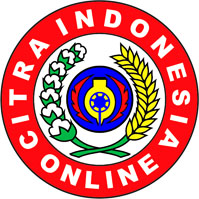The Increase of Student-Driven Encyclopedias: Changing Discovering Landscapes
In the ever-evolving realm of education, where details streams perfectly and access to expertise is only a click away, student-driven encyclopedias are becoming a dynamic tool in the knowing process.

These platforms not just give students with a repository of information however likewise encourage them to add, modify, and curate material, promoting a joint and interactive learning atmosphere.
As instructional standards change towards more participatory and comprehensive versions, the idea of student-driven encyclopedias embodies this makeover. These systems empower students to come to be active participants in knowledge q&a qammunity for students platform creation, linking the space in between traditional textbook understanding and modern digital resources.
The Concept of Student-Driven Encyclopedias
Student-driven encyclopedias are electronic platforms where pupils collectively gather, verify, and distribute information on a vast selection of subjects. Unlike conventional encyclopedias, which are typically written by experts, these platforms take advantage of the collaborative efforts of trainees to produce a thorough body of knowledge.
At their core, student-driven encyclopedias are made to grow essential reasoning, research study abilities, and digital literacy amongst pupils. By taking part in the procedure of content production, students find out to navigate and review information critically, skills that are vital in today’s information-rich culture.
Additionally, these platforms serve as an area for pupils to discover their passions and share their competence. This autonomous approach to understanding creation guarantees that a diverse variety of point of views and voices are stood for, enhancing the discovering experience for all individuals.
- Pupils acquire hands-on experience in research and content development.
- Encourages collaboration and peer communication.
- Advertises a much deeper understanding of subject.
- Fosters inclusivity and variety in understanding depiction.
Basically, student-driven encyclopedias change trainees from passive receivers of info right into active contributors, instilling a feeling of possession and obligation in their academic trip.
Advantages of Student-Driven Encyclopedias
Among the principal advantages of student-driven encyclopedias is the growth of necessary 21st-century skills. As pupils take part in the process of web content development, they refine their critical reasoning, digital literacy, and interaction abilities, every one of which are important in today’s interconnected globe.
Additionally, these systems motivate a joint learning atmosphere, where students can collaborate to confirm information, dispute various point of views, and co-edit articles. This peer-to-peer interaction not just enhances finding out end results yet also fosters a feeling of community and common regard among students.
Furthermore, student-driven encyclopedias supply a system for showcasing pupil work. As students contribute to the encyclopedia, they construct a portfolio of their study and writing, which can be indispensable for more scholastic and professional quests.
Obstacles and Limitations

Regardless The war on the western front was a stalemate by 1916. What was the effect of this development? A. The Germans were able to gain the advantage. B. Neither side was able to make progress in the war. C. The of the numerous benefits, student-driven encyclopedias additionally face specific challenges. Making certain the precision and dependability of details is extremely important, as these platforms rely on payments from students that may not yet have expert-level understanding.
- Keeping material high quality and precision.
- Supplying appropriate supervision and assistance.
- Ensuring fair accessibility and inclusivity.
To alleviate these obstacles, lots of student-driven encyclopedias apply a system of checks and equilibriums, where material is evaluated by educators or experts prior to publication. This ensures that the info offered is both exact and reliable, promoting the honesty of the platform.
The Future of Student-Driven Encyclopedias
As modern technology continues to breakthrough and the landscape of education advances, the capacity for student-driven encyclopedias is large. These platforms have the capacity to not just complement standard instructional sources yet also redefine the way expertise is acquired and shared.
In the future, we might see student-driven encyclopedias incorporating more advanced modern technologies such as artificial intelligence and artificial intelligence to boost content curation and personalization. In addition, they might increase past textual info to consist of multimedia web content, supplying an extra immersive discovering experience.
Equipping the Future Generation
Student-driven encyclopedias hold the promise of empowering the next generation of students. By placing pupils at the helm of knowledge creation, these systems urge long-lasting learning, inquisitiveness, and intellectual freedom.
To conclude, as academic systems continue to innovate, student-driven encyclopedias stand as a testimony to the power of collaboration and the importance of trainee company in the knowing procedure. By accepting these platforms, we open the doors to an extra comprehensive, appealing, and vibrant educational experience for all.

